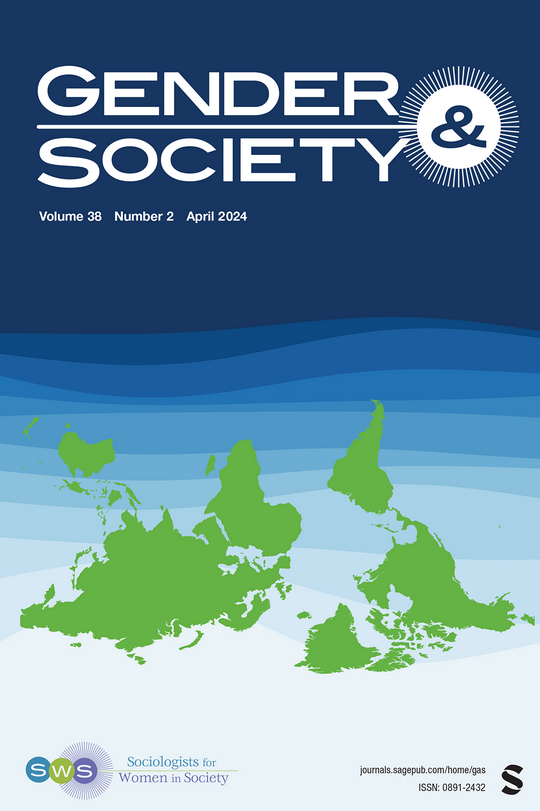Coming Into Identity: How Gender Minorities Experience Identity Formation
IF 7.2
1区 社会学
Q1 SOCIOLOGY
引用次数: 2
Abstract
Previous studies have found that trans people claim to have consistent gender identities over their lifetimes. As a result, scholars know little about processes through which individuals come to identify differently from their gender assignment. In this article, I analyze how gender minorities in the United States come to identify with new labels, theorizing gender-identity formation as a social process. Despite pressure to present oneself as “trans enough” and despite many individuals’ claims to “always have been” the ways they are, most research participants’ stories illustrate a process of gender-identity change—what I term coming into identity. Coming into identity is the process whereby individuals come to understand themselves in new ways despite living in epistemological systems and constructed realities where such ways of understanding oneself are not widely acknowledged. I find that participants’ coming-into-identity experiences involved self-reflection in relation to (1) exposure to new gender conceptualizations and models, (2) gender experimentation, (3) difficult experiences, and/or (4) conversations with others. This research contributes to our understanding of gender-minority identity formation and the relationships among discourse, narrative, story, social interaction, identity, and agency. I argue that in accounting for coming into their identities, individuals exercise agency, mobilizing and building new narratives and discourses.进入身份:性别少数群体如何经历身份形成
先前的研究发现,跨性别者声称一生中都有一致的性别认同。因此,学者们对个体从性别分配中产生不同认同的过程知之甚少。在这篇文章中,我分析了美国的性别少数群体如何认同新的标签,并将性别认同的形成理论化为一个社会过程。尽管面临着“足够跨性别”的压力,尽管许多人声称自己“一直都是”自己本来的样子,但大多数研究参与者的故事都说明了性别认同改变的过程——我称之为“进入认同”。认同的形成是个体以新的方式理解自己的过程,尽管生活在认识论体系和构建的现实中,这种理解自己的方式并没有得到广泛承认。我发现参与者的身份认同经历涉及以下方面的自我反思:(1)接触新的性别概念和模型,(2)性别实验,(3)困难经历,和/或(4)与他人的对话。本研究有助于我们理解少数性别认同的形成,以及话语、叙事、故事、社会互动、认同和能动性之间的关系。我认为,在解释进入他们身份的过程中,个人行使能动性,动员和建立新的叙事和话语。
本文章由计算机程序翻译,如有差异,请以英文原文为准。
求助全文
约1分钟内获得全文
求助全文
来源期刊

Gender & Society
Multiple-
CiteScore
9.70
自引率
3.60%
发文量
78
期刊介绍:
Gender & Society promotes feminist scholarship and the social scientific study of gender. Gender & Society publishes theoretically engaged and methodologically rigorous articles that make original contributions to gender theory. The journal takes a multidisciplinary, intersectional, and global approach to gender analyses.
 求助内容:
求助内容: 应助结果提醒方式:
应助结果提醒方式:


